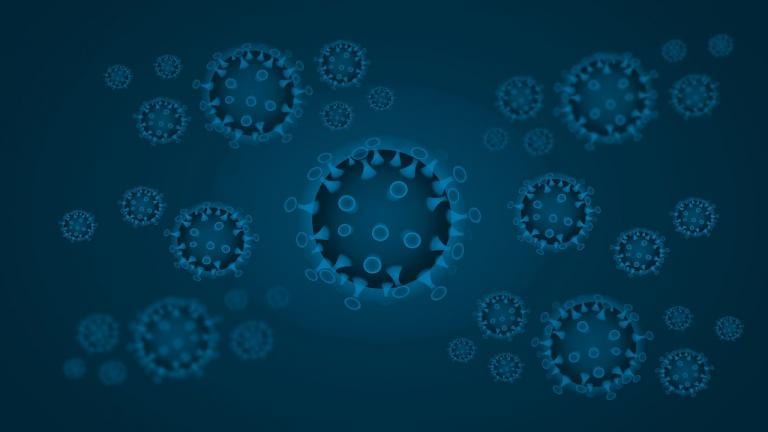
Honor and shame dynamics affect every aspect of social life. This includes the current coronavirus (Covid19) pandemic. How so?
As I’ve labored to point out (here, here, and here), honor and shame are inextricably linked to a collectivist mindset. The logic is not hard to see. People who are more sensitive to honor and shame will be more sensitive to the needs and feelings of others around them. Likewise, one’s social status is inescapably tied to his or her group identity.
China’s Response to Coronavirus
Consider China’s response to the virus. On the one hand, the government took certain actions that are not easily duplicated in more politically open societies. On the other hand, we witness a level of cooperation from the general public. Chinese have a social consciousness rarely seen in the West.
They are protective of others, particularly the elderly, young, and sick. Whenever I’ve taught a class and had the slightest appearance of discomfort or cough, I would promptly have some sort of medicine thrust before me, even if it meant students going through great effort. That sort of kindness is typical among Chinese.
In collectivist populations, people prioritize responsibility over rights. That is, they feel a greater sense of responsibility than they do an insistence on personal rights.
America by contrast….
The United States is famously individualistic. While the US prides itself as a country governed by the rule of law, Americans have a predilection for rebellion. One sure way to ensure a person does action X is to tell them not to do action X. Don’t jaywalk. Guess what. They will jaywalk just to assert their independence. When it comes to handling the coronavirus, this proclivity can be dangerous.
For example, a man flew from JFK Airport to Palm Beach, Florida after being diagnosed with the coronavirus. The ripple effect of his decision is incalculable. In the closed confines of an airplane, the likelihood that he passed the virus along to others is almost certain. Compounding the problem, southern Florida is packed with an older population, precisely those who are most vulnerable to the virus. Imagine how Americans would have mocked the US government used drones to urge (shame) people to stay home.
In another case, a father and sister of a coronavirus patient broke self-quarantine to attend a father-daughter dance. The family’s older daughter contracted the virus after visiting Italy. A county official showed demonstrable restraint when he said the father, “did not act consistently with the health department’s instructions.” As a result, he was told “to stay home or they will issue a formal quarantine that will require him and the rest of his family to stay home by the force of law.”
Americans, perhaps more than anyone else, are infected by a sense of invincibility. Combining that with an individualist mindset and a feeling of entitlement can create the direst of circumstances.
Collective Responses in America
No culture is entirely individualist in nature. After all, honor and shame permeate every society. The coronavirus has set up an experiment highlighting ways that collectivism influences the United States.
Negatively, we’ve seen many Americans respond with fear towards anyone who appears to come from Asian descent. Asian-Americans and Chinese students have felt the brunt of the coronavirus in terms of its social and economic consequences. The video below captures the experience of some Asian-American business owners.
Positively, we have begun to see American companies, schools, and local governments take the lead in limiting social interaction. The financial consequences are incalculable. We see a shift in thinking among Americans, who are now thinking more about the collective impact of their work and health decisions.
I do not idealize a collectivist perspective, as though it always brings about the best results. Soviet communism is a case in point. However, in times like these, the cooperation that marks collectivist thinking can be a powerful, constructive force.
The above video explains a well-known psychology experiment that illustrates how decision making is influenced by individualist-collectivist thinking.
The Politics of Coronavirus
Most grievous, we see honor and shame negatively affecting American politics. First, President Trump tried to minimize the threat of the virus while praising America’s readiness to handle it. This was an effort to make himself appear more in control of the virus that he or any President could hope to be.
Then came his Oval Office address to the nation on Wednesday night. Not wanting to lose face, Trump took to blame-shifting. He said,
“Taking early intense action, we’ve seen dramatically fewer cases of the virus in the United States than are now present in Europe. The European Union failed to take the same precautions and restrict travel from China and other hotspots. As a result, a large number of new clusters in the United States were [seeded] by travelers from Europe. After consulting with our top government health professionals, I have decided to take several strong but necessary actions to protect the health and well-being of all Americans. To keep new cases from entering our shores, we will be suspending all travel from Europe to the United States for the next 30 days.”
Furthermore, calling coronavirus a “foreign virus” (rather than simply “coronavirus” or “covid19”) effectively stokes a nationalistic mentality, an unhealthy expression of collectivist thinking.
I’m sure we haven’t seen the last of shameless actions and comments by people from both sides of the political aisle. What we all need to recognize is this: There is no honor in trying to “save face” amid this pandemic; it simply shameful.












